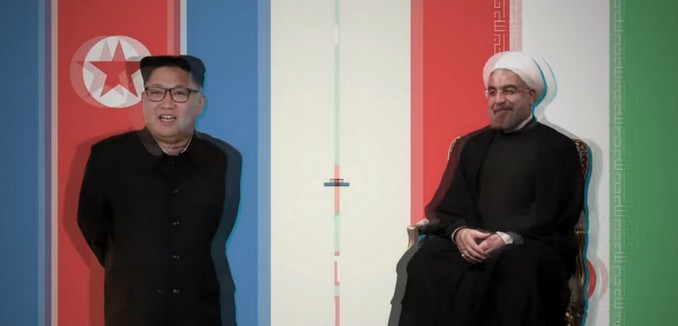Senior officials in the United Kingdom’s Foreign Office believe that Iran has aided North Korea in the latter’s development of nuclear bombs that can be mounted onto ballistic missile The Sunday Telegraph reported.
It is not yet clear what kind of device was detonated in the latest North Korean nuclear test, which took place on September 3, but it appears from the size of blast that the weapon tested was between the second and third stages of developing the hydrogen bomb—the type of nuclear device with the most destructive power—The New York Times reported last week.
The Foreign Office, according to the Sunday Telegraph report, is attempting to ascertain if “current and former nuclear states” assisted the isolated Asian nation develop a more sophisticated weapon. Iran is considered the leading suspect, but Russia may have played a role.
According to the report, it is “not credible” that North Korea’s nuclear scientists achieved the accelerated advances in its nuclear program on their own.
“There is currently an investigation into exactly how the country has managed to make this leap in technological ability,” UK Foreign Secretary Boris Johnson said recently. “We are looking at the possible role that may have been played, inadvertently or otherwise, by some current and former nuclear states.”
“British officials say Iran assists North Korean nuclear program,” Israel’s Deputy Minister for Diplomacy Michael Oren tweeted in response to the Sunday Telegraph story. “No surprise but what’s the world going to do about it?”
In March, it was reported that last year North Korea attempted to sell a form of the metal lithium, which can be used to miniaturize nuclear warheads to fit on missiles on the open market, possibly to Iran.
In December of last year, investigative journalist Claudia Rosett reported that Sen. Ted Cruz (R – Texas) asked then-Director of National Intelligence James Clapper what the United States intelligence community knows about Iranian nuclear cooperation with North Korea.
Rosett pointed out that it was unusual for Iran to be devoting resources to developing ballistic missiles, which are “cost-efficient only as vehicles for delivering nuclear warheads,” if it had sworn off the development of nuclear weapons, per the 2015 nuclear deal. She suggested that “North Korea’s nuclear program might be secretly doubling as a nuclear backshop for Iran.”
In February, a paper written by Israeli Lt. Col. (ret.) Dr. Refael Ofek and Lt. Col. (res.) Dr. Dany Shoham of the Begin-Sadat Center for Strategic Studies came to a conclusion similar to that of Rosett. Ofek and Shoham wrote that North Korea is likely “ready and able to furnish a route by which Iran can clandestinely circumvent” the nuclear deal.
Ofek and Shoham noted that one of the technical cooperation agreements signed between the two nations fell under the purview of the Atomic Energy Organization of Iran, and that an Iranian delegation reportedly attended a North Korean nuclear test in 2013.
[Photo: CNBC / YouTube]




